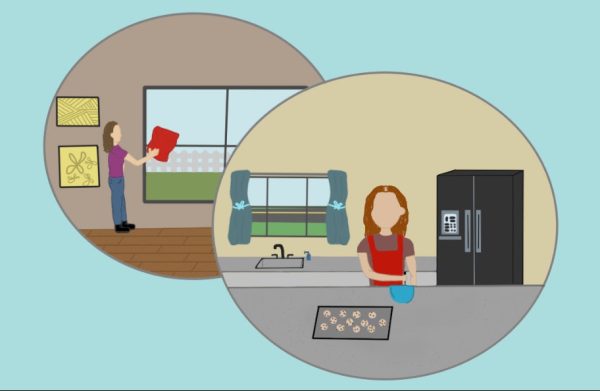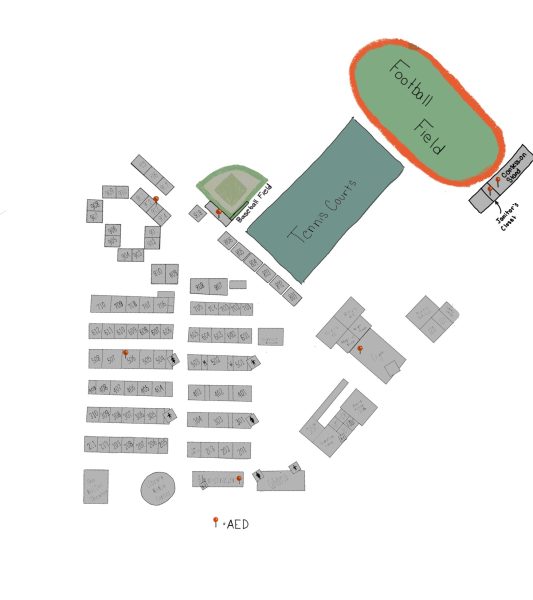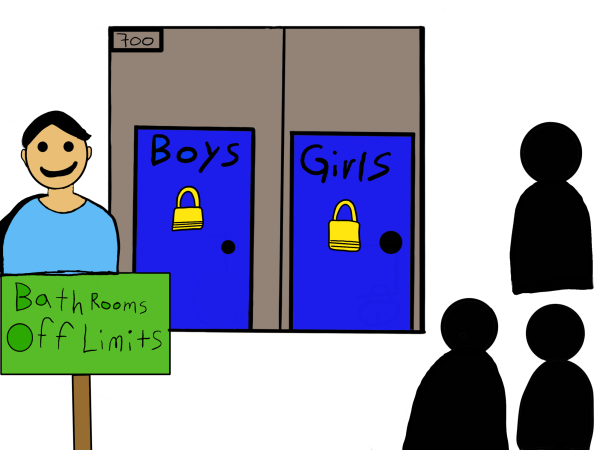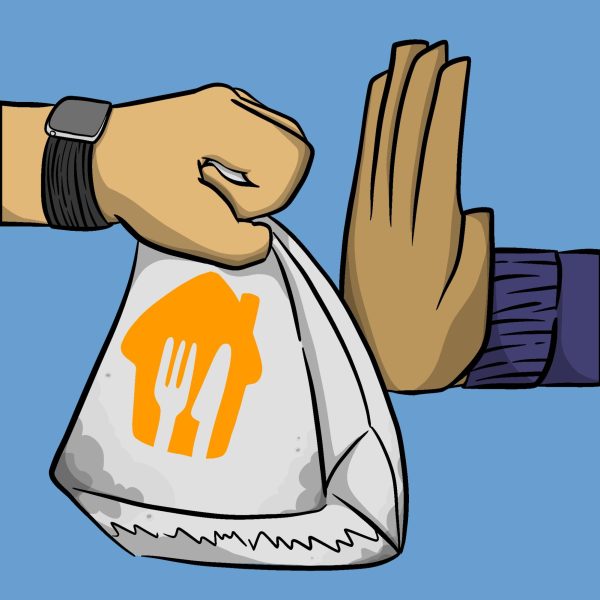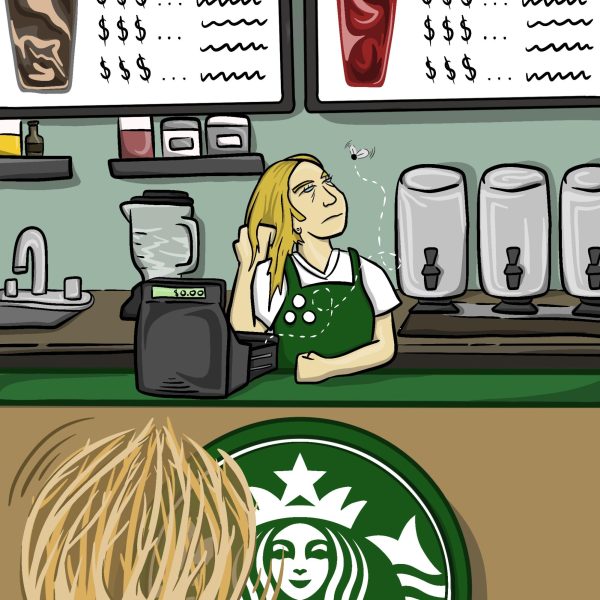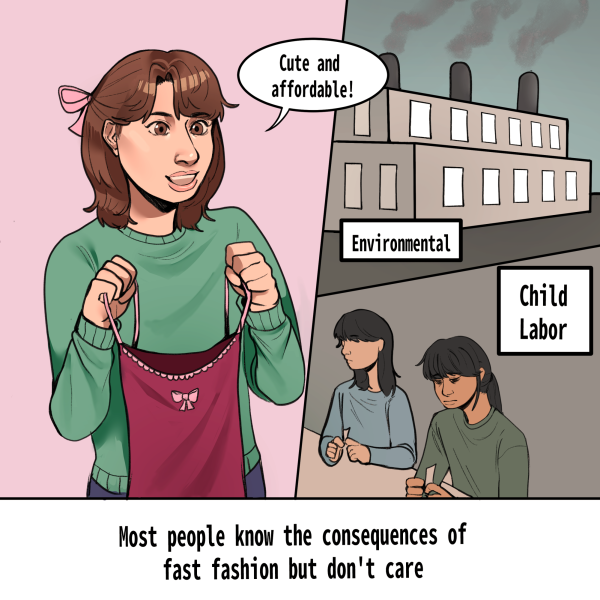Not just a girl problem
BVH does not comply with the Menstrual Equity for All Act
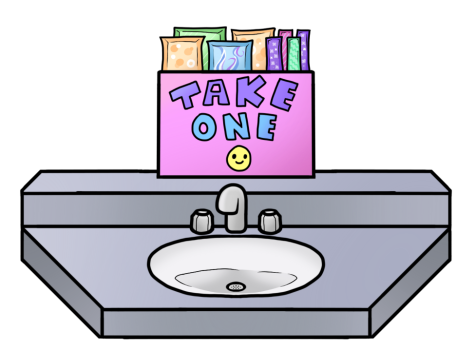
The Sweetwater Union High School District’s (SUHSD) Non-Discrimination statement states “The SUHSD prohibits discrimination, intimidation, harassment (including sexual harassment) or bullying.”
Beginning in the 2022-2023 school year, all California public schools were required to have menstrual products in all women’s restrooms according to the Assembly Bill (AB) 367. While SUHSD commits to this statement of non-discrimination, it is shocking to see Bonita Vista High (BVH) restrooms without menstrual products.
AB 367, also known as the Menstrual Equity for All Act of 2021 requires all public schools with classes from sixth to 12th grade to “stock the school’s restrooms at all times with an adequate supply of menstrual products in all women’s restrooms, all-gender restrooms, and in at least one men’s restroom.” After being in effect for five months, BVH has yet to provide menstrual products in any of their restrooms.
The only restroom with pads or tampons available for students is the school nurse. However, this still does not meet the standard set by AB 367. Not a single one of the girls’ restrooms in the main buildings are stocked with menstrual products.
A lack of access to menstrual products is more than an “inconvenience.” Inaccessibility to menstrual products leads to higher rates of absences for students with periods. It also hinders students’ ability to focus and remain engaged in class when they must worry about the next time they can refresh themselves.
A study conducted by feminine hygiene company Thinx and global nonprofit PERIOD found 4 in 5 students in the U.S. have “missed class time or know someone who missed class time because they did not have access to period products.”
Depending on the classroom they are in, BVH students must walk across the campus to the nurse’s office to find period products. Having these products in all restrooms will reduce the time students spend outside of the classroom and prevent them from missing out on learning experiences.
Menstrual equity is not a “girls’ problem,” it is an educational problem. In fact, this correlation is directly stated in Section 1 b6 of the AB 367. To fully create a non-discriminatory, equal educational environment for all genders, BVH must ensure that students with periods are comfortable.
Menstrual equity is not a “girls’ problem,” it is an educational problem.
Also mentioned in the AB 367 is the effect of income on access to menstrual products. Prior to the passage of the bill, California Title I schools where 40 percent of pupils meet the poverty threshold were required to stock 50 percent of their restrooms with feminine hygiene products.
As a Title I school, BVH needed to provide their students with feminine products in 50 percent of restrooms prior to AB 367. Taking poverty rates and income into account when dealing with menstrual equity is important because many students cannot afford period products.
In their study, Thinx and PERIOD also discovered that 20 percent of teens “have struggled to afford period products or were not able to purchase them at all.” Schools have a responsibility to provide students with the resources they need to succeed. Just as low income students have free and reduced lunch to end hunger, BVH should also provide students with menstrual products in all restrooms.
While not mentioned in AB 367, de-stigmatizing periods is equally important to consider. By stocking restrooms with period products, BVH would be telling students that they should not be ashamed of themselves for something that is natural and out of our control.
According to Always’ Social Impact Program Leader at P&G Charlotte Le Flufy, “menstruation is a barrier to girls’ education… because of the shame and stigma that still surrounds periods. Girls can be embarrassed to attend school during their period or fear of being teased.”
Period stigma is directly related to school attendance, which should give BVH an even greater incentive to work on making students with periods feel more comfortable. While stocking products does not eliminate all stigma, small steps toward ending the stigma are just as effective.
There have been great strides in promoting gender equity at BVH. From the Progressive Club’s reproductive rights rally, the formation of the Pretty in Pink Club, and the Gay-Straight Alliance club, students have been working to create safe spaces for all. On the other hand, there is no mention of AB 367 or easily accessible handbooks which mention feminine hygiene products on the SUHSD website. It’s time for BVH administrators to show that same support by stocking student restrooms with period products.

My name is Vanessa Hernandez. I am a senior at Bonita Vista High School and a first-year Staff Writer for the Crusader. I decided to join the Crusader...

